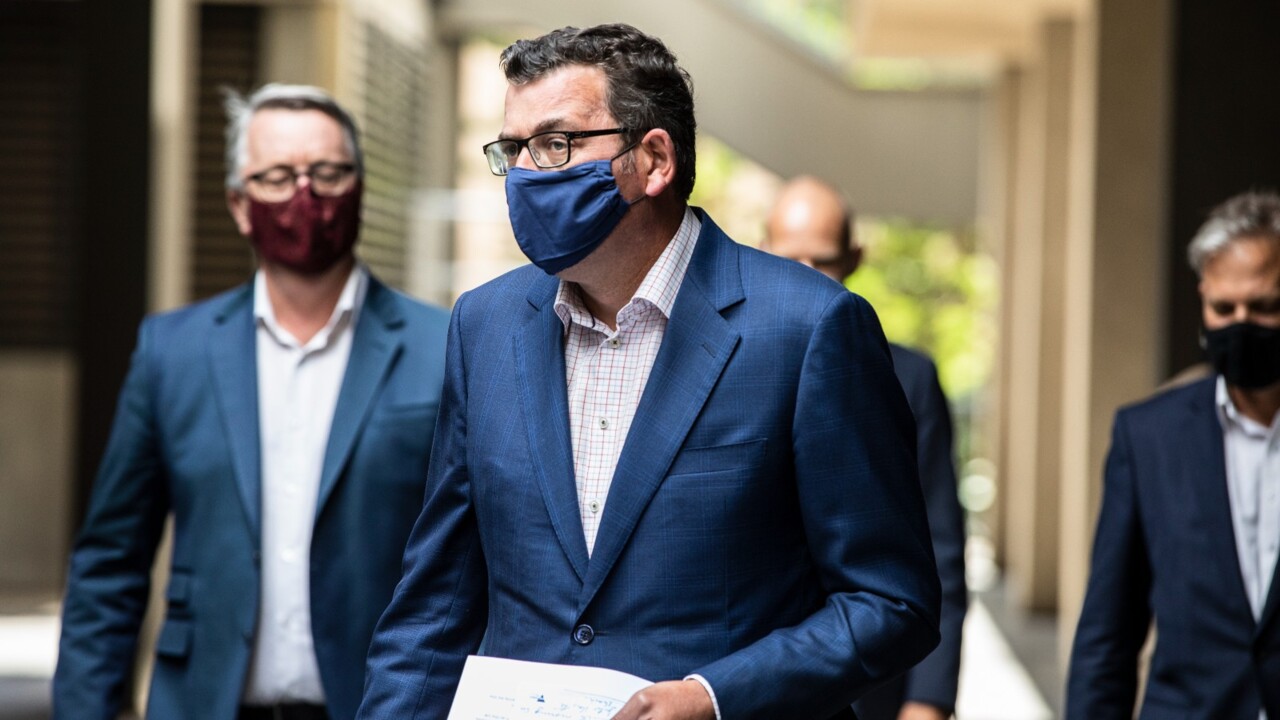Adem Somyurek: Ombudsman must consider red shirts scandal ‘serious corruption’
Victoria’s most significant political scandal, which influenced an election, should be revisited by the corruption watchdog for this important reason.

Why am I putting a motion up on Tuesday morning to have myself and 24 other current and former Labor MPs referred to IBAC for a serious corruption investigation?
The answer is we participated in the biggest political scandal in Victoria’s history and benefited by winning office.
I am not claiming to do this because I only now realise the red shirts was a rort.
I barracked for Daniel Andrews and his team as they fought to ensure the matter would not be investigated by the Ombudsman, even going as far as the High Court and reportedly wasting $1m of taxpayers’ money.
Labor MPs had no choice but to barrack for Andrews and his team, they had exploited the ALP’s stringent party discipline and in doing so compromised MPs by coercing them into complying with what was a corrupt scheme.

Andrews’ elevation to opposition leader was due to a factional deal.
When MPs in the Bracks Brumby governments looked to the future, he never came up as a potential leader.
Andrews had many enemies due to his skulduggery as a faction apparatchik.
Many of these enemies were now in parliament and took great pleasure in torturing him during the long years in opposition.
He was allowed to assume the leadership to absorb the bad times of the early years before a serious contender from the right could emerge.
Andrews knew that even if the Right did not find a candidate, the Left had Jacinta Allan.
Further, the recently elected and factionally better connected Jill Hennessy would receive support from the Left powerbrokers over him if he did not win.
This desperation drove Andrews to be a good opposition leader.
But it had a significant downside. It made Andrews push the boundaries well beyond what was acceptable and compromise his MPs in the process.

In the lead-up to the 2014 state election campaign, Andrews discovered a new campaigning technique referred to as field campaigning.
Andrews figured he had a competitive advantage in this area through the Labor Party’s and the union movement’s activist base.
Andrews would share with shadow cabinet his vision of having workers in uniforms, firefighters, nurses, ambulances and other service providers calling constituents directly to canvass for support. He was particularly excited about the United Firefighters Union because it had big trucks and sirens.
He was like a child, eyes beaming as he talked about the prospect of having the fire trucks and sirens campaign for him during the lead-up and at polling booths.
Andrews’ obsession with the field campaign created many political problems for him in the years ahead as the taxpayer was forced to pay a high price for the field campaign and the UFU deal that delivered the fire trucks.
His passionate advocacy soon turned into action as then treasurer John Lenders began to do the rounds of MPs to hand over their staffing entitlements.
Upper house MPs, in particular, were singled out and isolated for refusing to join the scheme. We were told we had an easy life in the upper house while our lower house colleagues were in the trenches fighting to get us into government. We participated because we were told parliamentary services had ticked off on the scheme.
The red shirts scandal involved the parliament paying for the wages of electorate officers who did not attend the office of the MP who employed them. Instead, they sat in a campaign office and campaigned for Labor.
The parliamentary leadership of the ALP coerced about 25 Labor MPs to sign false documentation stating the officers had performed electorate office work for them.
The Ombudsman called this scheme an “artifice”.
The Ombudsman handed down a scathing report but did not refer to the matter as corrupt. According to legislation, the Ombudsman is compelled to notify IBAC if the Ombudsman has reasonable suspicion that the scheme was corrupt. The Ombudsman did not.

Before the Ombudsman’s report, there may have been some doubt on whether the MPs had such broad powers to direct the duties and responsibilities of their staff; by not referring to the red shirts as corrupt, the Ombudsman’s report reluctantly accepted the broad interpretation.
The government did not accept the Ombudsman’s recommendation.
IBAC and the Ombudsman had been given a reference by the Attorney-General and the upper house in relation to a television program that featured me.
The two integrity bodies launched a joint investigation called Operation Watts.
I expected these allegations to be dispatched by IBAC/the Ombudsman within months.
I was surprised when I found out last October that Operation Watts would be conducting a public examination because IBAC/the Ombudsman now deemed any random engagement by electorate officers in factional matters as “serious corruption”, even though there is no breach in legislation.
This indicates a very important shift in the Ombudsman’s position. It is important that red shirts now be publicly examined before Operation Watts because red shirts was a premeditated, centrally organised and therefore a gold-standard rort of electorate office staff.
Given the new circumstances and the narrow terms of reference of Operation Watts, it is in the public interest for the terms of reference to be extended to include the most significant political scandal in Victoria’s history, which also influenced the result of an election.
Adem Somyurek is a former Labor MP





